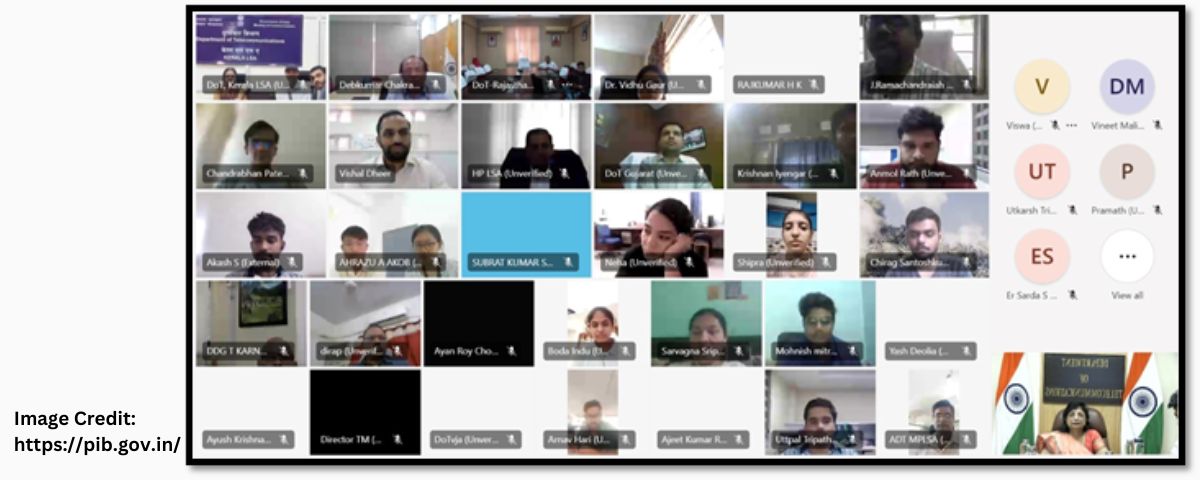
Shri Deb Kumar Chakraborti, Director General of NTIPRIT, emphasized the importance of the Sanchar Mitra program in bridging the communication gap between citizens and the Department of Telecommunications (DoT). He highlighted key duties of the DoT, including providing affordable connectivity, grievance redressal, tackling cyber threats, and offering safe, citizen-centric solutions. DG (NTIPRIT) also provided valuable suggestions for the expansion of the Sanchar Mitra program.
The workshop organized by NTIPRIT for Sanchar Mitra served as an induction program, enhancing the capacity, understanding, and effectiveness of volunteers. Focused on holistic awareness of telecom issues, the interactive workshop emphasized communication skills and provided an overview and demonstration of key citizen-centric services.
Yuva Shakti! Our Sanchar Mitras✨
— DoT India (@DoT_India) August 12, 2024
Spreading awareness on reporting stolen/lost phones & cyber frauds using Sanchar Saathi📲 #InternationalYouthDay pic.twitter.com/pd0lZ98ykP
Goal of Sanchar Mitra Program
The Sanchar Mitra program aims to enhance mobile users’ security, dispel myths about radiation, raise awareness about DoT’s initiatives, and prevent mobile-related fraud. By engaging Sanchar Mitra volunteers from different states, the program seeks to enhance the efficacy of the department’s efforts to promote a safe digital ecosystem.
Also Read:
All About Sanchar Saathi Portal
Roles of Sanchar Mitra
1. Awareness Campaigns: Volunteers will promote broad citizen-centric services like the Sanchar Saathi portal, Tarang Sanchar portal for EMF awareness, and toll-free numbers for reporting international numbers, spam, and suspected fraud communication.
2. Grassroots Outreach: Volunteers will conduct awareness campaigns at the grassroots level in native languages to establish a more relatable and effective connection with citizens. They will coordinate with colleges, NGOs, village-level entrepreneurs, etc.
3. Reporting and Escalation: Volunteers will assist citizens in reporting forged or fake mobile connections, lost devices, and other related issues. They will help navigate the Sanchar Saathi portal and escalate cases to the appropriate authorities as needed.
4. Coordination with Field Offices and Police: Volunteers will coordinate with the DoT’s field offices and local law enforcement agencies. They will assist in verifying information, providing necessary documentation, and facilitating collaboration to address fraud or misuse effectively.
5. Data Collection and Insights: Volunteers will gather valuable insights about local trends and challenges related to mobile security. This data will help the DoT tailor its strategies and policies to address specific issues faced by different states and communities.
6. Feedback Mechanism: Volunteers will relay citizens’ concerns, suggestions, and experiences back to the DoT. This ongoing feedback loop will aid in refining the Sanchar Saathi initiative and adapting it to evolving needs.
The program aims to build a bridge between the DoT and citizens, promoting a collaborative approach to addressing telecom and communication issues.



